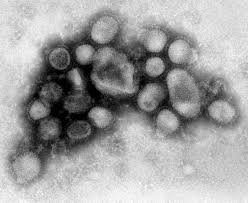



Sixth case of ASF brings cull count to 38,000 in China
While authorities battle to control the catastrophic outbreak of African swine fever in China, more cases of the disease emerge and add to the rising death toll of pigsThe story so far
Now hitting five provinces, African swine fever (ASF) has wreaked havoc in China since the first case was identified in Liaoning Province on 3 August 2018. On 2 September, the sixth case was identified in Anhui Province, where 1,264 pigs have been culled since 1 September.
China is the biggest producer, importer and exporter of pork, which massively increases the risk of ASF crossing borders and infecting pig herds globally. Guang Defu, Ministry of Agriculture and Rural Affairs in China, has warned that that the 3,235 cases of ASF reported across 11 other countries so far means that the risk of the disease appearing in other Chinese herds is high.
With this in mind, China has banned the transport of pigs and pork products from provinces that have reported outbreaks of ASF and will shut live hog markets in the affected regions. Other countries have followed suit with the Philippines banning the entry of domestic and wild pigs and their products, including pork meat and semen, from ASF-affected countries, including Latvia, Poland, Romania, Russia, Ukraine and China. All border crossings will be subject to strict biosecurity control and any prohibited items from affected countries will be confiscated.
Vietnam is also taking precautionary measures with its swine herds: the Vietnamese Ministry of Agriculture and Rural Development requests all localities to monitor pig farms and take samples for testing immediately should any pigs fall ill with any clinical signs associated with ASF.
It is expected that the shutdown of markets in affected areas will push pork prices up significantly in China, but transport of pigs and pork products will take much longer as transport through affected areas is also prohibited. The impact on the future of the global market is unclear but has the potential to be substantial.
As of 1 September, 38,000 pigs have been culled in China in an effort to eradicate the disease and prevent its spread. Epidemic culling is said to be almost complete in Liaoning, Henan, Jiangsu and Zheijiang provinces, but with cases continuing to emerge, it is expected that this figure will rise drastically over the coming months.
African swine fever
Contamination generally occurs via direct contact with tissue and bodily fluids from infected or carrier pigs, including discharges from the nose, mouth, urine and faeces or infected semen. It also spreads through transport and consumption of contaminated pork products, and some cases have originated from failure to comply with biosecurity standards by feeding waste food to domestic pigs. It is believed that a highly pathogenic strain of ASF was introduced to domestic pigs and, subsequently, wild boar populations in the port of Poti, Georgia, in 2007 when waste food from a ship originating in South Africa was fed to local pigs.
Although the virus in wild boar and hogs does not manifest any signs of the disease, it remains highly contagious across all swine species and can survive in pigs for long periods of time post-slaughter – even in frozen carcasses. It is also important to note that curing and smoking pork products does not destroy the virus.
It is vital to immediately distinguish the disease that is infecting a herd; ASF and Classical swine fever are caused by very similar viruses which are only distinguishable by laboratory testing. Notifying a vet as soon as any signs arise is the best way to ensure the correct quarantine and treatment procedures are followed – it could save the rest of your pigs. Use our Disease Problem Solver to check the clinical signs of your sick pigs.

The virus is highly contagious across all swine species and can survive in pigs for long periods of time post-slaughter – even in frozen carcasses
The pig (and its close relatives, boars and hogs) is the only natural host of the double-stranded, Asfarviridae family of viruses, meaning the virus does not cause harm to humans or other animals. This does not mean that humans and other animals cannot spread the virus as carriers; ASF is commonly carried by arthropods, such as soft-bodied ticks, through uptake of blood from infected pigs.
For more information on African swine fever, visit The Pig Site guide to ASF









